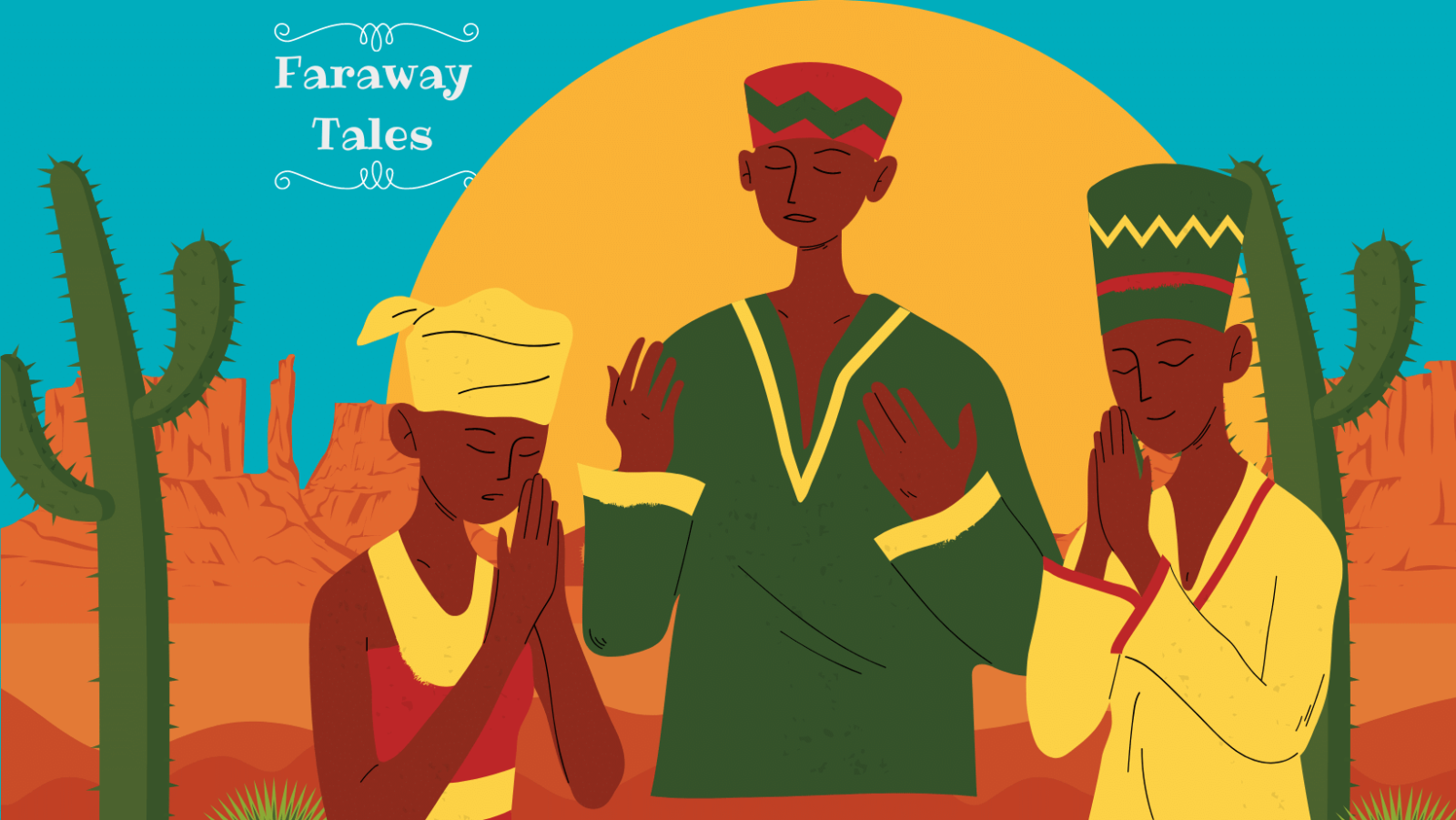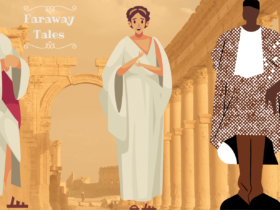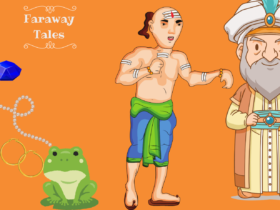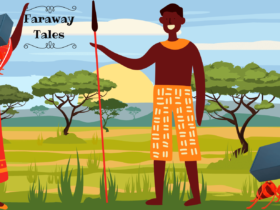|| A West-African folktale ||
Once upon a time in a small tribal village there lived a poor man called Akim. He led a very simple life. He lived in a mud hut with a goat and two chickens. He surived on the milk and eggs and occasionally he hunted rabbits.
It happened one day that Akim had to travel from his own little village to Accra—one of the big towns on the coast. Now he could only speak the language of his own village—which was not understood by the men of the town.
As he approached Accra he met a great herd of cows. He was surprised at the number of them, and wondered to whom they could belong.
Seeing a man with them he asked him, “To whom do these cows belong?”
The man did not know the language that Akim spoke, so he replied, “Minū” (I do not understand).
Akim, however, thought that Minū was the name of the owner of the cows and exclaimed, “Mr Minū must be very rich.” He then entered the town.
Very soon he saw a fine large building, and wondered to whom it might belong.
The man he asked could not understand his question so he also answered, “Minū.”
“Dear me! What a rich fellow Mr Minū must be!” cried Akim. Coming to a still finer building with beautiful gardens round it, he again asked the owner’s name. Again came the answer, “Minū.”
“How wealthy Mr Minū is,” said our wondering traveller. He was genuinely in awe of this rich man! He felt a little sad about his own hut.
Next he came to the beach. There he saw a magnificent steamer being loaded in the harbour. Akim never saw such a large ship.
He was surprised at the great cargo which was being put on board and inquired a passerby, “To whom does this fine vessel belong?”
“Minū,” replied the man shaking his head.
“To the Honourable Minū also! He is the richest man I ever heard of!” cried Akim. “Does this man own everything! I work so very hard and I barely get by!”, thought Akim sadly.
He finished his business in the town and set out for home for his village.
As he passed down one of the streets of the town he met men carrying a coffin, and followed by a long procession, all dressed in black.
He asked the name of the dead person, and received the usual reply, “Minū.”
“Poor Mr Minū!” bellowed Akim. “So he has had to leave all his wealth and beautiful houses and die just as a poor person would do! Well, well—in future I will be content with my tiny house and little money.” And Akim went home little bit more satisfied than when he felt before.
Like (0)







Leave a Reply